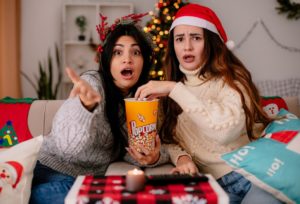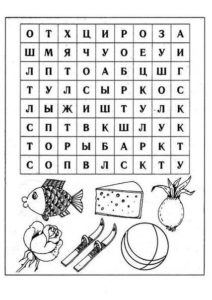German teacher
SOSH No. 7.
Solikamsk of the Perm Territory
Das Spiel
"Tiere sind unsere Freunde"
Game in German for students in grades 2 – 4
"My friends are animals."
The quiz “My Friends Are Animals” is intended for primary school students (2-4 grades) who are learning German. The class can be divided into two teams. For the correct answers, the team receives tokens. The assignments are based on the studied material on the topics "Petals", "At the zoo" . The winning team receives a prize.
Purpose of the event:
formation of communicative competence of students.
Main objectives:Systematization of knowledge on the topic “Animals”
Today we are going to talk about our animal friends. We'll split into two teams. Which team knows animals better, loves them, and can tell them in German? We will know this when we perform different tasks. For the correct answers, the team receives tokens. Which team will have more of them?
Children are divided into 2 teams, each team comes up with a name in which the name of any animal should be used.
("Lustige Kätzchen" and "Kluge Eulen")
1. A wild beast cannot live with a domestic animal!
It's time to separate the domestic from the wild!
(On the board are pictures of domestic and wild animals.) Children distribute pictures on the board into 2 groups - domestic and wild animals, comment on the Das ist ein Hund. Das ist ein Hase...
Wo sind die Haustiere?
Wo sind die Wildtiere?
2. Everyone at the zoo likes to walk.
What kind of animals can you meet?
Wen sehen wir in den Zoo?
Students from different teams take turns naming animals that can be seen at the zoo. The winner is the one who said the last sentence.
First pupil:Ich gehe in den Zoo und sehe einen Tiger.
Ich gehe in den Zoo und sehe einen Tiger und ein Zebra.
Ich gehe in den Zoo und sehe einen Tiger und ein Zebra und eine Schlange.
3. And now there are mysteries about wild animals.
Try to guess them quickly!
Dieser Vogel heiβt die Eule.
Die Eule frisst Mäuse.
Sie ist weise, sie ist klug.
In der Nacht sieht sie gut.
(Die Eule.)
Er ist klein
Er ist sehr fein.
Er läuft um die Wette.
Er frisst Gras und Blätter.
(Der Hase)
Er ist sehr schwer.
Sehr groβ ist er.
Fisch und Honig mag er sehr .
Und im Winter schläft er.
(Der Bär)
Er ist sehr fleiβig.
Er ist fleiβig. Das weiβ ich.
Seine Stacheln sind spitz.
Er frisst Beeren, Pilze.
(Der Igel)
Im Wald ist es kalt.
Der Wolf lebt im Wald.
Er ist böse, er ist grau.
Er läuft schnell und frisst Hasen
(Der Wolf).
4. We'll remember our pets now.
They always make us so happy!
Students from different teams take turns calling pets. The winner is the one who said the last sentence.
Wen sehen wir in den Hof?
First student: Ich gehe in den Hof und sehe einen Hund.
Ich gehe in den Hof und sehe einen Hund und ein Schwein.
Third disciple: Ich gehe in den Hof und sehe einen Hund und ein Schwein und eine Katze.
5. Do you want to write a song now?
There are lines ready.
Where's the rhyme?
Everyone is happy to be a poet!
Our song is about the cat Agath.
(Text of the song - on the board)
Children look for a rhyme to the lines of a poem. The word found appears at the location of the passes.
Meine Katze heißt Agat.
Sie ist 2 Jahre _____.
Sie ist weiß.
Sie ist grau.
Sie ist klug.
Sie ist ____.
Sie kann spielen.
Sie kann springen.
Sie kann miauen.
Sie kann ___ .
Sie mag Fleisch.
Sie mag Fisch.
Sie liegt gern auf dem ______.
Ich mag die Katze sehr.
Sie ist 2 Kilo _____.
Meine Katze heißt Agat.
Sie ist 2 Jahre alt.
Sie ist weiß.
Sie ist grau.
Sie ist klug.
Sie ist schlau.
Sie kann spielen.
Sie kann springen.
Sie kann miauen.
Sie kann singen.
Sie mag Fleisch.
Sie mag Fisch.
Sie liegt gern auf dem Tisch.
Ich mag die Katze sehr.
Sie ist 2 Kilo schwer.
Under the phonogram, children sing a song (the melody “Ah, Samara – the town ...”).
6. The vowels escaped from these words.
Only the escape was in vain.
They wanted to confuse us, ran away.
And we will read the words without them.
What kind of animals are here, we'll find out!
Welche Tiere sind versteckt?
MS, PPG, FCHS, TGR, KRKDL, KTZ, SCHWN
BR, LW, FCHS, KH, GNS, ELFNT, FF
7. And in this long chain, not one word, but several words.
That's right!
Wie heißen richtig die Tiere?
Katzemausschweinperferd
8. The pig grunts, the cat meows.
The duck quacks, the frog quacks. .
Who makes these sounds?
Who will name the beast correctly?
(In one column are the names of animals.) The other has verbs. What do beasts say? You need to guess by the consonance of verbs with similar Russian verbs.
Wie sprechen die Tiere?
Die Kuh- muhen
Der Hund – bellen
Die Katze – miauen
Der Löwe – brűllen
Das Schwein – grunzen
Das Huhn – gackern
Die Maus — piepen
9. And now I'll take one of you and cast a spell,
I'll turn him into a beast. Guess which one?
The teacher speaks in the ear of the disciple in what beast he has bewitched him. Others guess and ask questions:
"Cannst du muhen"? "Cannst du bellen...?"
10. Here's a new game.
It's called "Who am I?"
The participant of the game is given a poster that depicts an animal. The image has a face-sized circle, so the participant sees everyone and everything except the picture on the poster. The task is to guess what kind of picture he is holding, who is he? He asks questions:
Kann ich miauen?
Fresse ich Fleisch?
Bin ich klein?
11. There are many animals in our forest.
They won't give their lair to anyone!
In the circle are "beasts", (3Tiger, 3 Affen, 3 Elefanten ...) There's a host in the middle. He names two animals and says,
Affen — bitte lauft!
The animals whose names have been named run forward and change places. The host at this moment is trying to take the place (den) of one of the players. Those who do not have time become homeless.
12. Before we say goodbye,
And say goodbye to everyone.
I'll give you gifts.
For skill and effort!
Results, awarding of participants.
List of used literature
- Bim I. L., Ryzhova L. I. German language. 2nd grade. - Moscow: Enlightenment, 2010.
- Bim I. L., Ryzhova L. I. German language. 3rd grade. - Moscow: Enlightenment, 2011.
- Bim I. L., Ryzhova L. I. German 4 class. - Moscow: Enlightenment, 2012.
- Polyakova G. Yu. Song "Pages of color". Solikamsk, 2009.
{module Google_kvadrat}





